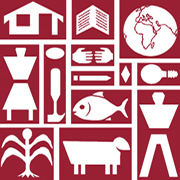
Although I used to think I would teach forever, I made the decision to retire from the University of Michigan in 2013. I had some issues with the frozen North, as well as another book to write. That book, “Fractured: Race Relations in ‘Post-Racial’ American Life” (2015, Peter Lang) contains what I began to learn about race at CIE in the 1980s and then, after a good deal of study, what I taught at the U of M for nearly 20 years. It’s a little dated now that President Trump has made racism great again, but the premise, that racism in wh ite liberal spaces is unspoken, unacknowledged, and extremely painful for people of color whether or not they mention it to their white friends and co-workers, is unfortunately still the norm.
ite liberal spaces is unspoken, unacknowledged, and extremely painful for people of color whether or not they mention it to their white friends and co-workers, is unfortunately still the norm.
Like all my books, Fractured is based on interviews – this time with high school and college students, educators, administrators, community organizers, tribal leaders, parents, friends, and colleagues across the country. The title is a bit misleading. “Fractured” seems to imply that what was once whole is now broken, which of course is far from the case. But I chose it for another reason. As a former student, now professor, remarked, “The post-racial” reminds me of the post-modern – the fracturing of things. It’s not like our society has finally come together – unless we’ve come together as a fractured society and we’re feeling the prickliness of the broken shards.”
My previous book (2012) is called Their Highest Vocation: Social Justice and the Millennial Generation (Peter Lang). It's based on extended interviews with students, faculty, staff, program heads, academic advisors, and others at the University of Michigan. They - and I - comment on the strengths and foibles of "millennial" college students, who are said to the most progressive generation in history, yet seem reluctant to question or challenge the system or to go very deeply into the complex issues of social justice. Nevertheless, they have been developing their own leadership style and their own relationship with the people around the world they so passionately want to serve. What do they need from their teachers in order to create, as Paulo Freire says, "a world in which it will be easier to love"?
I’ve writte n or edited three other books: Listening to the World (1994, National Council of Teachers of English) (from my CIE dissertation) is now out of print but it’s available free on my webpage. My second book, When Race Breaks Out: Conversations About Race and Racism in College Classrooms (2001, Peter Lang) is now in its second and third revised editions (2009, 2017). My third book, an edited collection, ALT DIS: Alternative Discourses and the Academy (2002, Heinemann), is about opening the university to new styles of writing and critical thinking. Many of the pieces are written in "alt" styles that range from light-hearted to the angry, or moving, or political, or subtle, all the way back to the straight-forward “academic.” All my books are available on Amazon.com
n or edited three other books: Listening to the World (1994, National Council of Teachers of English) (from my CIE dissertation) is now out of print but it’s available free on my webpage. My second book, When Race Breaks Out: Conversations About Race and Racism in College Classrooms (2001, Peter Lang) is now in its second and third revised editions (2009, 2017). My third book, an edited collection, ALT DIS: Alternative Discourses and the Academy (2002, Heinemann), is about opening the university to new styles of writing and critical thinking. Many of the pieces are written in "alt" styles that range from light-hearted to the angry, or moving, or political, or subtle, all the way back to the straight-forward “academic.” All my books are available on Amazon.com
I am blessed with a wonderful extended family: My grandchildren are Andy (formerly Sarah) (21), Devyn (15), Kendall (12), Aidan (8), Amelia (6), and two step grandchildren, Violet (9), and Fiona (5). I have a wonderful stepson, Jaime Koopman (the dad of the four youngest ones), an equally wonderful step-daughter, Sara Koopman, who is a professor of Peace Studies at Kent State University, as well as my three daughters: Nondini (Beth), a staff member at Ananda Village near Nevada City, California; Maria, a lawyer in Portland, Maine; and Cybelle, a tenured professor of Sociology at the University of California at Berkeley. My husband, Jim Koopman, is a retired epidemiologist who continues to be enthralled by science in general, and by his own theoretical work on the dynamics of polio and other communicable diseases. Jim previously worked in many Latin American countries and, as a physician, participated in the world-wide campaign to eradicate smallpox in the 1970s in India.
 Oh, yes – my retirement. Well, this year we moved permanently to Pine Island on Florida’s West Coast, a semi-rural “old Florida” style environment, where I’ve found endless interesting things to do.[1-20]
Oh, yes – my retirement. Well, this year we moved permanently to Pine Island on Florida’s West Coast, a semi-rural “old Florida” style environment, where I’ve found endless interesting things to do.[1-20]
I’ve become a docent at The Randell Research Center, an archaeological site and home of a Native American group, the Calusa, that was forced out of their impressive kingdom in southwest Florida in the 1700s. I’m active in local and national politics, a member of the Fort Myers Friends Meeting (Quakers), and continue to write – poetry. My first (and only) published poem, Court Watch, can be found here.
Email: hfox@umich.edu
